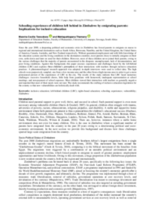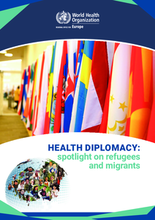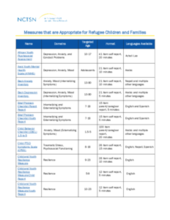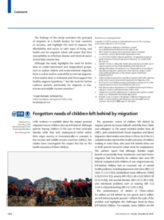Displaying 381 - 390 of 839
This paper assesses experiences and challenges faced by the left-behind children (LBC) in Zimbabwe and explores these children’s perceptions of their interactions with teachers through inclusive education practices.
This book is part of the WHO Regional Office for Europe’s commitment to work for the health of refugees and migrants. It showcases good practices by which governments, non-state actors and international and nongovernmental organizations attempt to address the complexity of migration, by strengthening health system responsiveness to refugee and migrant health matters, and by coordinating and developing foreign policy solutions to improve health at the global, regional, country and local levels.
This article provides an overview of typical experiences for unaccompanied immigrant minors (UIMs), discusses the accompanying legal and clinical implications, and offers recommendations for psychological practice at the level of providers, training programs, and child-serving systems.
The report highlights how children’s movement is driven by different motivations, exposes children to different forms of harm, and presents multiple barriers to accessing services.
The National Child Traumatic Network (NCTN) has published a list of measures that front line professionals can use to assess the exposure to trauma among migrant and refugee families and children.
This dissertation examines the communication between left-behind children in China and their migrant parents from the three-level perspective of relational maintenance (Dainton, 2003): the self, the system, and the network contexts.
This chapter describes and proposes a new social inclusion model for supporting unaccompanied minors in becoming autonomous, as they are one of the most vulnerable groups of contemporary migration flows.
While previous studies have focused on the effects of parental deportation on young children, this study uniquely contributes to the literature by exploring how adolescents experience and cope with a forced family separation.
While previous studies have focused on the effects of parental deportation on young children, this study uniquely contributes to the literature by exploring how adolescents experience and cope with a forced family separation.
This systematic review of children left behind by migrant parents by Gracia Fellmeth and Kelly Rose-Clarke and colleagues in The Lancet included studies from all LMICs, and considered both forced migration and labour migration.




